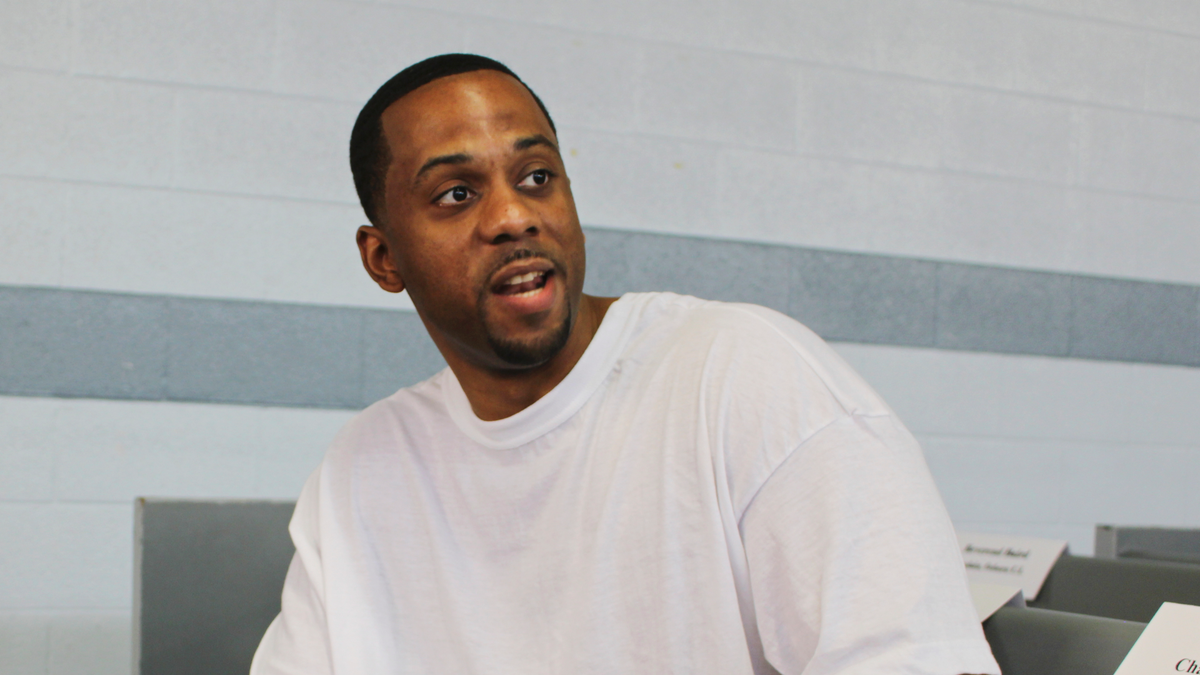
SOMERS, Conn. – Imprisoned for killing a man, Edward White initially feared retaliation when he learned a fellow inmate was his victim's nephew.
For a time, the inmate stopped speaking with White. But he ultimately offered forgiveness, an act that White credits to the peer counseling program through which they met.
"Prison logic will tell you it's supposed to become violent," said White, 35. "If we didn't have the opportunity to meet in the program, who knows how he would have reacted."
White told his story one day last week to visitors including Connecticut's top federal prosecutor and several federal judges. They were all gathered inside a chapel at Osborn Correctional Institution to learn how the inmates are coaching one another to accept responsibility, respect themselves and others, and ultimately prepare for life after prison.
A half dozen inmates, including killers and former gang leaders, gave a presentation on their program, known as Skills of Socialization, or SOS, before chatting over coffee and cinnamon buns with dignitaries including the senior U.S. judge for the district of Connecticut, Janet Bond Arterton.
U.S. Attorney Deirdre Daly said the soaring rates of recidivism for convicts in the U.S. are not sustainable and she wanted to highlight the inmates' work.
"It's important for you to know there is support on the outside," Daly told the prisoners.
The program, launched two years ago by seven inmates serving lengthy sentences, involves an eight-week curriculum and outside speakers. Its leaders described to the judges how they came to grips with their own anger, born in some cases of childhood trauma, and how they teach their peers to realize how their actions affect others and move beyond a criminal lifestyle.
It is unusual for inmates to develop peer counseling programs themselves, although they have far more credibility with the prison population than any outsiders, according to Brad Brockmann, executive director of the Center for Prisoner Health and Human Rights in Rhode Island. He said prison administrators typically are reluctant to give inmates much leeway.
"Peer education in and of itself is a critically underused resource in prisons and jails nationally, particular when you understand the greatest underused resource in prisons are prisoners themselves," he said.
Unlike many prison-run counseling programs, this one is voluntary, and participation has no impact on release dates. Still, there is a waiting list with 200 inmates, and any participant who has a disciplinary infraction is sent to the back of the line.
"We like to get to these guys early. We can change their thinking, and we can change their lives," said Tyrone Whitaker, one of the program's founders.
The program has been credited with reducing recidivism and disciplinary infractions among its graduates. The leaders also have been working with at-risk youths outside the prison and have been cleared to volunteer at other state prisons to spread their message. A local businessman, Michael Gambino, is helping the group to develop job-related training.
White, of Hartford, has served more than half of a 20-year sentence for manslaughter and is focused on being there for his daughter when he is released.
"I have to do what's right in here in order to make it out," he said. "This group has given me so much hope."





















